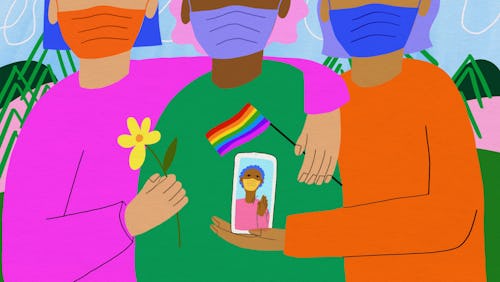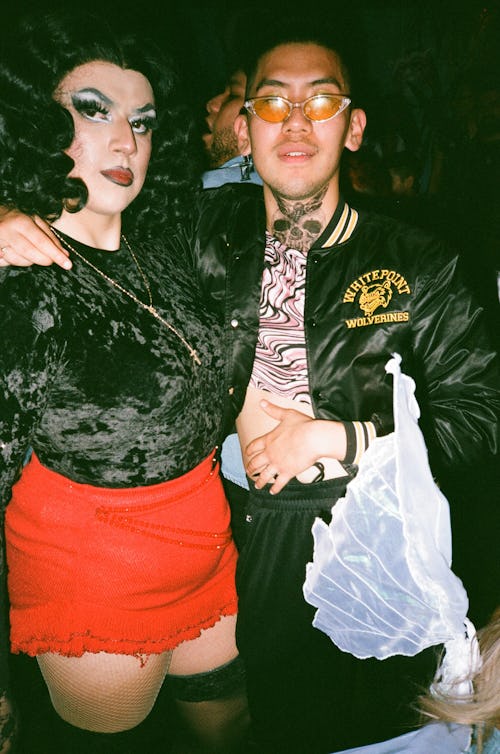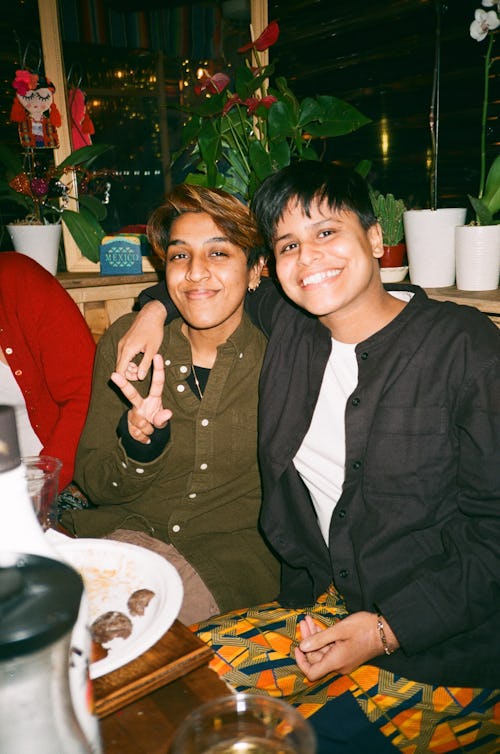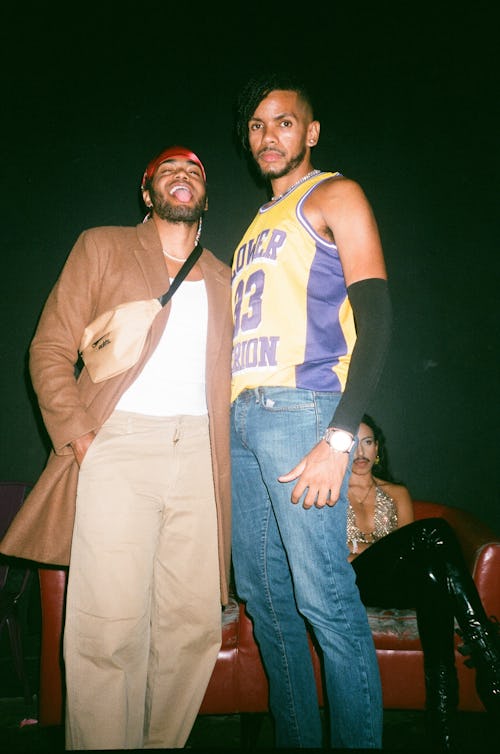
When I found out Donald Trump was going to become president in 2016, the first thing I did was head to my local gay bar. The Boiler Room in Manhattan’s East Village is dingy and divey, the type of establishment where drunk people abandon half-finished vodka cranberries on toilet covers and roaches scurry down the walls. I walked in with a friend and we bought a drink before someone walked up to the jukebox to play a Whitney Houston song. The few other people in the bar squealed with excitement and got up. One of them came up to us, took us by our hands and asked us to dance. Little did I know that this would be just one of many times that the queer community would become my lifeline in the years to come.
The Boiler Room was also where I took my first boyfriend when a group of older queens, as they liked to call themselves, gave us roses and slices of cake (it was one of their birthdays) and wished us a happy relationship. I went there again when we broke up. The Boiler Room was one of few spaces where I could express myself without bounds, where I could grieve and celebrate, laugh, cry.
But for an entire year of the pandemic, there was nowhere for us to go. Some of us had to quarantine with family members or roommates and in many instances, tone down our queerness because not all spaces welcomed it. During that time, I realized that I didn’t have many close queer friends and that my relationship to the queer community mostly consisted of fleeting interactions — strangers I met at clubs, apps or bars but whom I never saw again.
Then came the spring of 2021. As vaccinations rolled out and indoor spaces began to open back up in New York, three friends and I decided that we wanted to throw a party and create a community of creative people of color. After a year of social and cultural upheaval, we didn’t want to return to the same type of mindless celebrations that we used to go to before the pandemic, where the goal was simply to blow off steam.

We threw our first event in a public garden in Bushwick that belonged to a man named Hernan because we wanted to raise money for his garden. We blasted music from our speaker and people who were passing by on the street saw us and joined. A few hours in, the event turned into a big dance party and neighbors who had been living around the block for years met each other for the first time. At our second get-together in Harlem, we hosted an event exclusively for the queer community called Amor Prohibido, after the Selena song. Seeing so many queer people laughing and kissing and singing in Spanish, my first language, re-affirmed that after so much time in isolation, I could still find true uninhibited joy by being around others like me.
By then, enough people had heard about us that people formed a line that stretched down the block. It was clear that the community wanted to party, but many told us that night that they were also desperate to make queer friends after a year spent indoors. Per the recommendation of friends, we began to host dinners and smaller get-togethers for people to meet and talk without having to get turnt. Eventually, we formed a collective around our events called Whorechata, whose mission is to create chosen family for queer, trans and non-binary people of color.
If it hadn’t been for the pandemic, I’m almost certain that Whorechata would not exist today. The pandemic made us realize that meaningful queer friendships aren’t just fun to have — they are essential for our survival. Gathering, even if it was just for one drink or to watch music videos in our living rooms, was the main way we used to fill the void. We created spaces where we could just be, without having to politicize, justify or explain our existence.

Vincent Chong, a 29-year-old artist and friend who is involved with Bubble T, a collective that centers queer Asians, tells me that the pandemic taught him to prioritize his mental health within queer spaces. Chong says that pre-pandemic, he felt that the main way he connected with the community was by partying but now, people seem more keen to participate in more chill activities and his friends tend to be more understanding when he can't make it to an event.
During a time when none of us could access physical spaces beyond our homes, Chong feels that there is more empathy in the queer community for people with physical and mental limitations. For example, Chong tells him that big crowds and loud noises can easily overwhelm him. Because of the awareness that came with COVID, Chong feels that among his queer friends, it is more acceptable now to use mental health as a reason to opt out of activities. “The pandemic made it clear that we were always prioritizing able bodied folks,” Chong tells me. “It also made it clear how much we weren’t making spaces accessible for people who couldn’t be physically present.”

He says he sees evidence of this new awareness around mental health in LGBTQ spaces recently — he reminded me of a queer film screening we both attended in October in which the host of the event admitted they weren’t in a great headspace. They affirmed that it was ok to be struggling considering the monumental shifts our community has experienced this year and we did a small meditation together. I don’t remember mindfulness like this happening in the same way or with the same frequency pre-COVID and it seems like a lot of queer organizers are making it a point to check in constantly.
The pandemic forced many of us to confront patterns in our lives that weren’t sustainable.
Even if it’s not always as on-the-nose as talking about mental health, the pandemic forced many of us to confront patterns in our lives that weren’t sustainable. Jonathan Perez, another friend who runs a Mexican restaurant in Spanish Harlem called Ollin, identifies as queer and Mexican. Until recently, Perez was a DACA recipient and tells me that he realized this year just how much he had neglected his mental health and how the end of quarantine catalyzed this realization. “I didn’t realize the way that my identities, specifically being gay and undocumented, was weighing so much on my mental health,” he says. “Up until this year, I put everything else before my wellbeing.”
He says that learning this made him want to be more intentional about sharing space with queer people at his restaurant. Perez runs Ollin’s social media account, which has a large following, and this year he spoke openly about his sexuality and clarified that Ollin was queer-friendly in a part of the city that doesn’t have many openly LGBTQ spaces. This Thanksgiving, Perez asked Whorechata to partner with him and we hosted a dinner for queer people who couldn’t go home for the holidays.
Although this past summer felt like a time of celebration and excess after quarantine, the fall and winter gave us time to reflect and figure out where we want to go from here. And now with the new variant, who knows when we’ll be able to gather again safely. In the past year, queer spaces and organizers have fought to be more inclusive and mindful of each others’ limitations; others, including Whorechata, were created because we longed for meaningful community beyond the dance floor.







